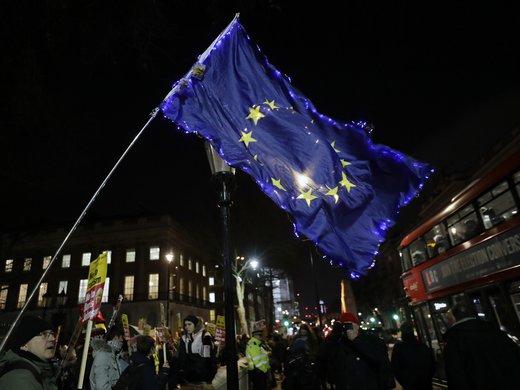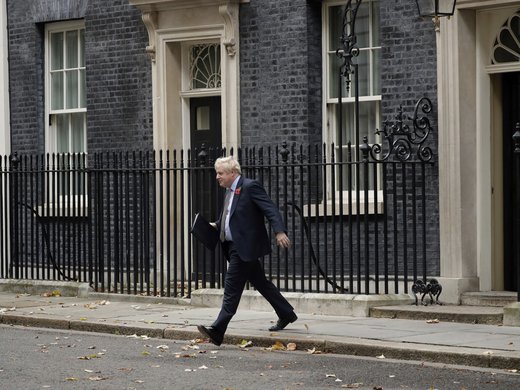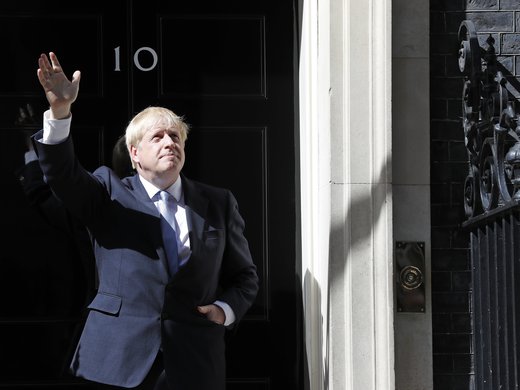The consequences of the United Kingdom’s June 23 referendum on whether to remain in or leave the European Union will be profound for Britain and the EU itself, but the result will be felt far beyond Europe. Canada has a particular stake in the outcome of the referendum. When Canada committed to deepening its economic relationship with the EU by negotiating the Canada-EU Comprehensive Economic and Trade Agreement (CETA), it did so on the understanding that the United Kingdom would be part of the deal. With CETA heading toward ratification, possibly in 2017, what will a “Brexit” mean for the Canada-EU and Canada-UK trade relationship?
If the UK leaves the EU, it no longer will be a party to CETA. This may seem obvious, but the text of CETA could give rise to some confusion. Because the EU and its member states have not yet determined whether CETA falls within the exclusive competence of the EU to sign and ratify, or is a “mixed agreement” requiring the approval of each member state, the “final” CETA text contemplates either possibility: it contains bracketed language listing the UK and each of the other 27 EU member states as parties to the agreement. Nevertheless, even if CETA is a mixed agreement, member states will be parties to the agreement only if they remain member states. If the UK ceases to be an EU member state, it will not be a CETA party. Nor does CETA offer any mechanism for the UK to join as a non-EU member state; it contains no provisions for accession by new parties, other than new EU member states.[1]
The Mechanics of a Brexit
Article 50 of the Treaty on European Union (TEU) sets out the process by which the UK or any other member state can withdraw from the EU. First, the UK would have to notify the European Council (consisting of the heads of state or government of each member state) that it intends to withdraw. That would trigger a two-year period for the UK to negotiate its withdrawal with the rest of the EU.[2] The UK’s withdrawal would take effect when the withdrawal agreement enters into force or, if negotiation of the withdrawal were to fail, two years after the notification, unless the deadline is extended by a unanimous decision of the remaining 27 EU member states.
Consequences for CETA and Canada-UK Trade
The Canadian government and the EU have targeted 2017 for ratification and entry into force of CETA. In light of the Article 50 process, it is apparent that the UK’s withdrawal from the EU could delay that target, both because the EU will be preoccupied by more pressing (even existential) concerns and because the EU or Canada might want to delay ratification in any event until a UK withdrawal agreement is concluded and uncertainties surrounding the terms of the withdrawal are resolved.
Without the UK, CETA would remain hugely important for Canada, offering it preferential access to a market of some 440 million people and an economy in excess of US$15 trillion.[3] However, within the EU, the UK is the single most important trading partner for Canada. It is the second-largest EU member state economy (and the fifth-largest national economy in the world),[4] the destination for more than 40 percent of EU-bound Canadian merchandise exports, and accounts for more than 25 percent of two-way Canada-EU merchandise trade and roughly one-third of two-way services trade, including financial services.
The preferential access to Canadian markets that Canada has granted to the EU in CETA is predicated on the preferential access the EU has granted to Canada. The latter includes preferential access to the UK market for Canadian goods and services. Under CETA, nearly all import duties maintained by Canada and the EU on each other’s goods are to be eliminated when the agreement enters into force. If the UK is not part of CETA, neither Canadian exports to the UK nor UK exports to Canada will benefit from those preferences.
As a practical matter, that outcome would not be expected to have much effect on bilateral Canada-UK trade in goods, at least in the short term, for two related reasons. One is that the UK is a World Trade Organization (WTO) member in its own right, not just as an EU member state. Following its withdrawal from the EU, the UK would continue to be bound by (and apply to Canadian goods) customs duties at the most-favoured nation (MFN) tariff rates that form part of the EU’s WTO commitments, just as Canada would continue to apply customs duties at its MFN tariff rates to imports from the UK. The other reason is that, on most of the goods commonly traded between Canada and the UK, these MFN rates are already low or zero. For example, gold and other precious metals and stones account for the majority of Canada’s merchandise exports to the UK by value. These exports enter the UK duty free, under the EU’s MFN tariff.
Nor would the absence of the UK significantly diminish the EU’s services trade commitments under CETA. The agreement commits the EU, including the UK, to maintain existing levels of services trade liberalization, but offers little in terms of new market access for Canadian service suppliers.
It is therefore unlikely that Canada would take the position that a UK withdrawal from the EU, and Canada’s consequential loss of the preferential access to the UK market that it anticipated under CETA, would skew the agreement’s overall balance of negotiated concessions in the EU’s favour to such an extent that the CETA should be reopened.[5]
Post-Brexit Scenarios
The reversion to WTO commitments as the framework for the Canada-UK trading relationship does, however, raise the important question of what would happen later. It is fair to assume that, having left the EU, the UK might want to begin the lengthy and complicated process of renegotiating the WTO tariff and other commitments it undertook as an EU member state. It is also likely that the UK would want to form its own preferential relationships with significant trading partners, including Canada. During his recent trip to the UK, US President Barack Obama cautioned that, following a Brexit, Britain would be “at the back of the queue”[6] for a trade agreement with the United States. Even if that were the case, there is no reason to think that Canada would similarly shun the opportunity.
On the contrary, Canada would have ample reasons to want to conclude a preferential trade agreement with an economy that is one of the world’s largest, has a mostly complementary trade profile to Canada’s, and is at a comparable level of development. Canada and the UK are already familiar with the trade opportunities and barriers in each other’s markets, thanks to their long-standing historical and economic ties, common legal traditions and the work undertaken in the CETA negotiations. It would be relatively easy for Canada and the UK to use CETA as a starting point for trade liberalization on a bilateral basis, but also to move beyond CETA in areas such as agricultural and services trade.
In sum, however dramatic the geopolitical fallout of a UK withdrawal from the EU may be more generally, in the context of Canada-EU and Canada-UK trade relations it should be mostly benign.
[1] Article 30.10.
[2] The European Council, with the consent of the European Parliament, concludes the withdrawal agreement on behalf of the European Union. TEU art 50(2).
[3] Data derived from 2014 GDP figures from the World Bank. See online: <http://data.worldbank.org/region/EUU> and http://data.worldbank.org/country/united-kingdom>.
[4] Based on GDP in US dollars rather than purchasing power parity.
[5] I acknowledge that many classical economists consider “concessions” to be an inappropriate characterization of what a country is doing when it opens its markets to foreign trade, given that such liberalization, even when done unilaterally, is understood to be welfare enhancing for the liberalizing country through greater competition and access to lower-cost imports. Nevertheless, real-world trade negotiations are conducted from a significantly more mercantilist perspective and tend to be measured and sold politically from that same perspective. That perspective is reflected too in the resulting agreements themselves, which, in various contexts, provide for the rebalancing of “concessions” in the event that a party does not fulfill its commitments. It therefore is appropriate to raise the issue in relation to a Brexit.
[6] Anushka Asthana and Rowena Mason, “Barack Obama: Brexit Would Put UK ‘Back of the Queue’ for Trade Talks”, The Guardian (22 April 2016), online: <www.theguardian.com/politics/2016/apr/22/barack-obama-brexit-uk-back-of-queue-for-trade-talks>.


